|
By Nadia Dalimonte With Halloween just around the corner, you may want to curl up with a horror movie or two. Here are some great Double Feature ideas to get you in the mood for spooky season! These mostly women-led films range from funny and comforting to utterly bone-chilling. Carve a pumpkin, light a candle, grab a hot drink, and pick a duo that speaks to you. Or comment below with recommendations!
0 Comments
By Nadia Dalimonte Anne Hathaway in The Witches (2020) The Witches, the latest reimagining of Roald Dahl’s 1983 book of the same name, boasts plenty of talent in front of and behind the camera. Alfonso Cuarón and Guillermo del Toro both have producing credits, and the latter co-wrote the screenplay with Black-ish writer Kenya Barris. Robert Zemeckis has directed many special effect vehicles throughout his career, sometimes to the detriment of a story. Funnily enough, the more advanced technology has become, the more distracting the effects in his work appear to be. Earlier films such as the Back to the Future trilogy and Death Becomes Her incorporate practical visuals that fit well with the imaginative stories. But in more recent years, his over-reliance on effects has become a distraction, as is the case with his adaptation of The Witches.
Following in the footsteps of Nicolas Roeg’s 1990 film adaptation starring Anjelica Huston, this new version does not deviate very far from the book. In some ways it sticks even closer to the source material, while also bringing in new perspectives. This story is set in 1960s Alabama, where a young boy (Jahzir Bruno) goes to live with his grandma (Octavia Spencer) after his parents’ death. The beginning focuses intently on the aftermath of loss, exploring the young boy’s emotions with a level of patience that helps establish the bond between him and his grandma. With love and care, his grandma slowly brings him out of his grief, and the two become more closely knit. But another shadow is cast upon them, from evil forces his grandma evidently knows a lot about…witches. As she says to her grandson, once a witch enters your life, you can never truly escape them. This sentiment is put to the test during a trip to the grocery store, where the young boy encounters a witch. When the grandma realizes what he saw in detail, the two hurriedly leave home to stay in a hotel. The grandma explains the hotel is a safe place as the only guests are wealthy white people, and the witches don’t go after the rich. Themes of class and discourse on how children are valued differently are some of the ways this new adaptation brings a different perspective to a classic story for a new generation. During their hotel stay, they stumble across a conference of witches led by the Grand High Witch (Anne Hathaway). The witches’ introduction plays for comical and witty effects, with clear alluding to their ominous intentions. The Grand High Witch asks the hotel concierge, Mr. Stringer (Stanley Tucci), if he’d call an exterminator should there happen to be any mice infestation. Rest assured, this hotel doesn’t have a mouse problem…not yet. While wandering around, the young boy finds himself in a conference room where the witches are set to meet. This setting is where the familiar reveal takes place; the witches can remove their shoes, gloves, and wigs, all the items that hide their characteristically witchy features. They revel in the clock ticking, as they’ve asked a kid named Bruno (Codie-Lei Eastick) to meet them under the promise of him getting more chocolate. Unraveling as the original story does, the Grand High Witch transforms the young boy and his new friend Bruno into mice. The duo, along with a new character of a pet mouse Daisy (Kristin Chenoweth), must find a way to change themselves back and stop the witches from turning more children into mice. This adventurous side to the story is one of the few highlights of the film, largely thanks to good voice work as well as the strong bond that has been established between the young boy and his grandma. Comparisons to the 1990 adaptation of The Witches are inevitable. Zemeckis's version is slightly different with the inclusion of new perspectives, an ending that stays closer to the source material, and a much more resonating Hero Boy character. Jahzir’s wonderfully endearing performance as the young boy is delightful to watch. In the young actor’s feature film debut, he carries the story with so much energy and charm. He also has magical chemistry with the great Octavia Spencer, and of the cast the two of them give the most consistently strong performances in the film. That cast includes Anne Hathaway, having a great time playing the Grand High Witch, who turns out to be the most disappointing character. The let down doesn’t necessarily come from Hathaway, whose immersive commitment to a deranged and totally campy performance is fun to watch unravel. It’s the visual creation of her character that is underwhelming, which puts a bit of a damper on all the fun she’s having. In reference to the 90s adaptation, the biggest draw of that film was Anjelica Huston in the same role, making wickedness look effortless. It’s an absolutely iconic performance with the added layer of creepy, and practical, makeup. The reality-based visuals from what the camera could do, rather than what could be added in post-production, made the Grand High Witch look genuinely creepy. In the new version, CGI takes the place of practical prosthetics, and there aren’t many characteristic effects added in the first place. During the big reveal scene, it turns out that the Grand High Witch looks a lot like the other witches in that conference room: bald with a big carved out smile. She has some new features, like the ability to levitate and stretch her arms to never-ending lengths. But her reveal is underwhelming, mainly because Zemeckis relies so heavily on digital makeup trying to make the character scary-looking. Her capabilities are much more disturbing than her appearance, as seen in an earlier flashback part of the film where she turns a young girl into a chicken. The film expands a bit more on the history between the Grand High Witch and the grandma, as the latter’s past friendship with that little girl explains why she has so much knowledge about witches in general. Hathaway and Spencer also get to share some moments of recognition, and the two play off each other well. The Witches does just enough to stand on its own with some good performances, beautiful set designs, and newly incorporated themes. But the storytelling gets lost in an over-reliance on visual effects and a brew of distracting elements (including unnecessary narration by Chris Rock and a very odd montage at the end). By Nadia Dalimonte Lily James and Kristin Scott Thomas in Rebecca (2020) What makes Daphne du Maurier’s novel ‘Rebecca’ intriguing is that even after death, the titular character’s haunting presence is felt deeply. Whether it be through the behaviours of all those who played a role in her life, or through the walls of Manderley, the moody estate she left behind physically, Rebecca’s impact endures.
Rebecca is the story of an unnamed woman who marries a wealthy widower and moves to his estate, where the haunting shadow of his late wife still lives. Haunting is not the best word to describe Ben Wheatley’s flat adaptation of the gothic tale. In his reimagining of events, there is hardly any sense of dread or intrigue conjured by the character of Rebecca. She is certainly explained to be the driving force behind many of the other characters’ actions, but at no point in the film is her impact strongly felt. Wheatley brings increasing focus to the whirlwind romance angle between the wealthy widower Maxim de Winter (Armie Hammer) and the new Mrs. de Winter (Lily James). The decision to go down this route takes a lot of tension and mystery out of the film’s source material. To make matters worse, the romance is sorely lacking in the passion that would fuel a whirlwind, as the lead roles range from okay to blatantly miscast. Armie Hammer could have been asleep in every lush frame and it would not have made any difference to the film. James tries, but ultimately struggles to delve into the psyche of her character. Even Kristin Scott Thomas, the only person in this film who seems to have a strong grip on the character she plays, is not given very much to do. Mrs. Danvers, the head housekeeper at Manderley, has a deep love for Rebecca, and remains adamant about keeping her presence alive in the estate. In Mrs. Danvers eyes, the home belongs to Rebecca, and absolutely no one can nor would even be worthy of filling those shoes. Introducing a new Mrs. de Winter into this picture creates a dynamic between these women that is interesting on the page, but lifeless on screen. The scenes between Thomas and James hint at potential but feel terribly one-sided, as the former performance digs deeper than the latter. All of the performances are let down by weak direction and writing. But Thomas’s work in particular feels the most disappointing, because she evokes the most intriguing spark, and is the only performer who can really channel Rebecca’s impact through strong reminiscing. She establishes a mysterious subtext with her presence and expressions, but never fully gets to soar, even with a more dramatic ending for her character. Wheatley also tries and fails to infuse haunted elements into the film. Mrs. Danvers has a brief moment of explaining to Mrs. de Winter that Rebecca’s presence is still felt in the estate, but this character affirmation adds nothing to the story. The biggest problem with this film is that Wheatley progresses without having a strong grasp on Rebecca’s impact. There are numerous moments of obvious insistence, such as Mrs. de Winter finding hair in Rebecca’s brush, or all of the characters watching a body being carried from a shipwreck. Another scene in particular sees a room full of house guests circling a downcast Mrs. de Winter while chanting the name ‘Rebecca’. Wheatley just cannot evoke the mystery of that character in an impactful way, having to shout her name aloud in a feverish and choppily edited ballroom sequence instead. The editing in this film is erratic to say the least. For some reason, there’s a fast forwarding technique sometimes used on characters’ thoughts, placing them in scenes that they are going to appear in very soon, then moving backwards to where they are in the story’s progression, then moving forward again. It’s odd, and adds to the overall disappointing experience of watching this film, especially given the adapted text. Rebecca skips mindlessly around the source material, lacks any sense of suspense, and fails to evoke the elements that make its titular character so mysterious in the first place. By Nadia Dalimonte Sujata Day and Ritesh Rajan in Definition Please (2020); film still from Sujata Day Writer, producer, and director Sujata Day tells an incredibly charming story in her debut feature film Definition Please. Her debut excels as a comedic and dramatic character study that comes from a place of authenticity. Day, who also stars in the film as Monica Chowdry, flexes her many talents both in front of and behind the screen. With love, she highlights family ties and bottled up conflicts that arise, which gives all the characters a sense of urgency.
There’s so much to love about this story of the Chowdry family, starting from the beginning. The film follows Monica (Day), a Scribbs National Spelling Bee champion who won her accolade in 2005 and was poised to move onto bigger, better things. Day introduces the character in her moments of young glory with a time capsule of starry news footage. Fast forward to: adult Monica, 15 years after her win and still living at home in sleepy Greensburg, Pennsylvania. She lives with her mom Jaya (Anna Khaja) and is a tutor to young Spelling Bee hopefuls. Monica leads life with a resistance to change. She gets an exciting job offer that would take her to a new setting, but she lets the opportunity collect some dust, pending a response. Close friend Krista (Lalaine), who works at the town bar, urges Monica to climb the ladder to greatness, but family obligations keep Monica at home a while longer. Her estranged older brother Sonny (Ritesh Rajan) returns home to help take care of their mom, who we learn is living with an illness. Monica and Sonny don’t get along, and there is an urgency for them to reconnect as they help their mom prepare for the anniversary of their dad’s death. Jaya won’t be able to leave this earth in peace knowing that her children are having trouble bonding. But the more the siblings try to patch things up, in an effort to lift their mom’s spirits, the more their personal struggles rise to the surface. Day touches on many universally resonating themes from her perspective within the South Asian-American community. The story seamlessly balances heartfelt portrayals of family obligations, different coping mechanisms, the rocky road to adulthood, and chronic sickness. Day also makes a powerful connection between the characters and the stigma surrounding invisible diseases. Sonny, who appears to be bubbly and has a zest for life, is coming to terms with his bipolar disorder diagnosis. We see light switch moments where his mood suddenly turns angry or violent. Monica doesn’t want him in her life if he’s not on medication, but when he is on medication, he doesn’t feel like himself. The film has a refreshing representation of mental health. Day engages in open conversation about characters in healing and the sense of wishing away conflict, hoping it would magically disappear by pretending long enough. Definition Please is made more resonating through the performances. Each and every cast member shine in their roles, especially the family trio of Day, Khaja, and Rajan. They share such heartwarming chemistry full of humour and depth, bringing well written characters onto the screen. The film also has strong visuals, sometimes evoking memories from Monica’s childhood that give insight to her feelings of comfort as well as getting to the root of some traumas. Another great layer is the way Day includes Spelling Bee influences, through Monica often using complex words that her friends need simplified, or through fun visuals where a word and definition will appear on screen when an attractive-looking man walks into frame. In her film, Day plays on the expectations and pressures of what success looks like as an adult. The pressure starts from an early age; there’s a strong moment in the film in which one of Monica’s students decides she doesn’t want to be part of the Spelling Bee anymore. The student’s mom projects fears of failure onto Monica and her situation of still living at home. It’s a great scene that speaks to the amount of detail Sujata Day brings to telling a story that she wants to see up on screen. Her debut is one of the most heartfelt films of the year. Photo by Cinemaniaworld Earth to Films's Nadia Dalimonte joined Duane Miller on the Cinemaniaworld show as part of the Halloween Marathon Review! Nadia's choice of horror movie to discuss was Hereditary (2018), directed by Ari Aster and starring Toni Collette.
The podcast is available on all Cinemaniaworld platforms. Check out their link below to listen! https://linktr.ee/cinemaniaworld By Nadia Dalimonte Sunita Mani and John Paul Reynolds in Save Yourselves! (2020) Our compulsion for social media has perhaps never been as potent as it is today. The increasing dependency on the internet, especially during a time of uncertainty, is a running theme in the apocalyptic horror-comedy Save Yourselves!. The film is about a young couple, Su and Jack, who pledge to disconnect from technology for a week in order to reconnect with each other. Cut off from all devices, they miss the news of fuzzy murderous aliens (also known as “poofs”) invading earth. Save Yourselves! is an enjoyable, funny look at a totally unassuming couple dealing with sudden chaos while learning more about who they are beyond a screen.
The most resonating aspect about the film is how Su (Sunita Mani) and Jack (John Paul Reynolds) try to position themselves in an unexpected situation. Both characters are anxious about getting older, and want to accomplish something in life beyond their typical daily schedules. They decide to stay at a remote cabin (belonging to a friend’s grandfather) not just to escape from the outside world, but also to let their brain chemistry sort itself out. They are being put to the test as they strive to be their authentic selves. Su and Jack essentially stumble their way through the apocalypse, making some questionable choices and some smart ones, trying to follow plans but mostly acting on a whim. It’s refreshing to watch more realistic characters in this threatening scenario, who admittedly don’t have the “real world” skills to know what they’re supposed to do at any given moment. Writer-directors Eleanor Wilson and Alex Huston Fischer do a great job of introducing the threat, first playing as comical until we see just how scary and deadly these fuzzy poofs actually are. When a poof finds Su and Jack in the cabin, they are forced to fight back, and the chase leads them from one hiding spot to the next. Eventually they find themselves on the run in the woods, where they discover the terrifying way that the aliens claim victims. Stuck in a matter of life and death, the stakes are high for the characters and their relationship. The film maintains a mostly entertaining energy throughout, and narrowly avoids overstaying its welcome in large part thanks to an incredibly strong lead. Sunita Mani’s performance as Su is one of the biggest highlights of the film. Her timing is spot on, her charisma is off the charts, and she has such wonderful screen presence that a series of her fighting off aliens would be a welcome idea. Her on-screen partner, John Paul Reynolds, is more erratic given his character, but he has great chemistry with Mani. Together they (more so Mani) elevate a story that relies on the company it keeps in the two lead characters. The film stumbles a bit in the final act, with an ending that doesn’t click as much as desired, but Save Yourselves! is certainly a refreshing addition to the horror-comedy genre. By Nadia Dalimonte Sarita Choudhury in Evil Eye (2020) “I guess it’s hard to really know someone, right?”
Evil Eye has an intriguing supernatural premise, women leading the story, and refreshing cultural specificity. But the potential on the page never really clicks on screen in an effective way. The film is a sporadically fun watch led by Sarita Choudhury’s strong performance, which is unfortunately weighed down by Elan and Rajeev Dassani’s lackluster set up. The filmmakers adapted the story from an Audible Original by playwright Madhuri Shekar. Evil Eye could’ve been a great supernatural thriller, but it’s a film that reveals all its tricks early on and then slow burns in circles to reach an inevitable confrontation. The highlight is Choudhury, who gives it her absolute all to evoke a constant feeling of anxiety on a level that the film surrounding her can’t reach. She plays Usha, a traditional Indian mother who is convinced that her daughter’s new boyfriend is the reincarnation of a man who tried to kill her 30 years ago. Usha’s belief in reincarnation and curses are rooted from her personal experiences that still feel fresh with the passing of time. The filmmakers makes it very clear that her growing suspicions will align with the introduction of this new boyfriend, which leaves no room for surprises and instead starts the countdown to when this man will reveal his true intentions. In the meantime, Usha’s relationship with her daughter Pallavi (Sunita Mani) takes center stage. The two are very close from the beginning, constantly on the phone to each other. The majority of the film plays out through phone calls, as Usha lives with her husband in India while Pallavi lives in the U.S. Pallavi, nearing 30 without a husband, spends a lot of time fielding her mother’s concerns about finding a partner. It’s a universal talking point that grounds the film, especially considering Mani and Choudhury have wonderful chemistry that never wavers. But there is more on Usha’s mind, and because of the abusive experience she had as a young woman, she is an especially protective parent determined to get rid of a curse. She believes in the evil eye and that it (in the form of a bracelet) will protect Pallavi from harm. When Pallavi runs into a handsome man named Sandeep (Omar Maskati) at a coffee shop and the two begin dating, her excitement at everything going so well is met with Usha’s immediate suspicions that this is all too good to be true. To show where the suspicions are coming from, the filmmakers use flashbacks from Usha’s painful experience with an abusive ex-boyfriend who wouldn’t leave her alone. Each flashback is aligned with a present-day sign Usha recognizes in Sandeep’s behaviour. She grows more and more convinced that he’s the reincarnation of the man who abused her. Her concerned husband tries to reassure her she has nothing to fear, to no avail. Pallavi laughs off her mother's threats, all the while there are red flags galore at the one-month point of their relationship. The expensive gifts, Sandeep wanting her to quit her job and move in together, swooping in “for her own good”. The character of Sandeep has all the ingredients of an obvious villain exposed as potentially sinister from the very beginning. While Maskati is fine in the role, he’s playing someone who never deviates from a literal path, and so much of the film is simply waiting for him to do exactly what Usha said would happen. The final act is a tense one, but also void of surprises and feels unfortunately rushed. Evil Eye tries to build suspense in a slow-burning way to reach a showdown, losing energy in the process. The film works best as a mother-daughter drama about emotional recovery that dictates the fear of history repeating itself generationally. The chemistry between Sarita Choudhury and Sunita Mani totally carries the film, and proves to be far more interesting to watch unfold than the film's supernatural premise. By Nadia Dalimonte Jennifer Kim in She Dies Tomorrow (2020) Could the release date of this film have been any more perceptive? Amy Seimetz’s existential horror, She Dies Tomorrow, centers on the universal fear of imminent death as an unexpected plague sweeps through a group of people. We are all going to die at some point, but if we knew exactly when, how would we live out the rest of our time? Seimetz, who also wrote the film, tackles this question in a way unlike anything I’ve seen.
Without much backstory for the characters or exposition for what is happening, the film is a totally immersive and sensory experience about contagious paranoia. The contagion begins with Amy (Kate Lyn Sheil), who is introduced in a dizzying state of dread. Wanting company, she calls her friend Jane (Jane Adams) in a quiet fright. When Jane arrives hours later, Amy tells her in utter seriousness that she is going to die tomorrow. Mustering an everyday sigh, Jane returns home…but she soon finds herself filled with the same unrelenting dread of knowing that she won’t live to see tomorrow either. Not knowing where this plague is coming from, or how these characters are going to die, or what’s going to happen at any given moment makes this film incredibly intriguing to watch. The story is clouded in alluring mystery. Flashing lights that pull characters in are the only apparent indication that death is looming. Seimetz lingers on ambiguity for a while at first, to the point of being super close to testing my patience. But then she smartly shifts the focus on Jane, avoiding getting lost in the ambiguity. Given the clarity that something is in fact spreading, the film really starts to soar when the plague follows Jane home, due in part to a spectacular performance from Jane Adams. Her lived-in dread spreads like wildfire. Much like what I can imagine is a common response to impending doom, she doesn’t want to be alone when it happens. So she decides to visit her brother Jason (Chris Messina) on the eve of his wife Susan (Katie Aselton)’s birthday party at their home, where they’re hosting another couple. Fitting the film like a glove, Jane Adams delivers a performance built on the senses and you absolutely never know what she’s going to do next. Her brother turning off the lights to bring out a birthday cake is enough to make her gasp in utter fear, as if she thought she just took her last breath. Another layer Adams plays to perfection is the truthfulness that comes to light when death is around, as she won't have another chance to say what’s on her mind. The sense of dread in this film never lets up, as all the people at that birthday party are now filled with this plague Jane leaves behind. Tilly (Jennifer Kim), who’s been dating her boyfriend Brian (Tunde Adebimpe) well past the relationship’s expiry date, tells him her deepest thoughts about their partnership not going anywhere. Jason and Susan rush upstairs to their daughter’s room, waking her up with worrisome cries they blame on alcohol. We are all going to die at some point, but if we knew exactly when, who (if anyone) would we choose to spend the rest of our time with? Who would we choose to stop seeing? She Dies Tomorrow is an unexpectedly compelling film that evokes constant anxiety for what will happen to the characters and utilizes every second on screen to build visually on the senses. By Nadia Dalimonte We covered spooky in a cozy way. Now it’s time for the horror stories. Goblins, ghouls, and the possessed. Slashers, comedies, and the supernatural. Tense family dinners (Toni Collette has now entered the chat). Horror elicits fear in many ways, overlapping with genres and evoking more than just jump scares. Exploration of the unknown is a common thread that makes the genre so resonating. Here are some horror stories that resonate with us most! Take a peek, if you dare… By Nadia Dalimonte Radha Blank in The Forty-Year-Old Version (2020) Radha Blank’s funny and passionate directorial debut feature, The Forty-Year-Old Version, is by far one of the best films of the year. Blank, who stars in the film and wrote the screenplay, is an incredible storyteller with a clear vision about artistic expression.
The story is about Radha, a playwright looking for a breakthrough in New York City. Ten years after writing a play and winning a ’30-Under-30’ award, she now teaches a small group of students for a theatre company that doesn’t get the proper funding. She is at the mid-life point where she’s being “rediscovered”, even though she’s been here all this time, working and writing. She’s currently working on a play about a Black couple living in a gentrified Harlem. Her friend and agent, Archie (Peter Y. Kim), tries to look for avenues that would welcome her voice. The search gets her in the room with celebrated theatre producer J. Whitman (Reed Birney), who makes her empty promises that she’ll get to actually tell her story. He has a history of misrepresentation and wants Radha’s play done his way: completely reshaped to suit white audiences. At the heart of this story, beautifully directed in black and white, is an authentic voice who needs to be heard. Blank explores working in a white dominated industry that continually pushes marginalized artists to compromise their stories. As Radha loses more and more control of her own play, she starts using her voice as RadhaMUSPrime, rapping about her experiences. She eventually meets music producer D (Oswin Benjamin), who encourages her and the two form an intimate connection as the play’s opening night quickly approaches. Blank also includes documentary-style interviews with people on the subject of turning forty. This adds another layer of perspective to the sentiment that 40 is not too late, that there is an audience for ’40-Over-40’. The 40-Year-Old Version is a compelling film with a brilliant lead performance by Blank and a pitch perfect supporting cast, who altogether make a memorable mark. |
Archives
June 2024
Categories |

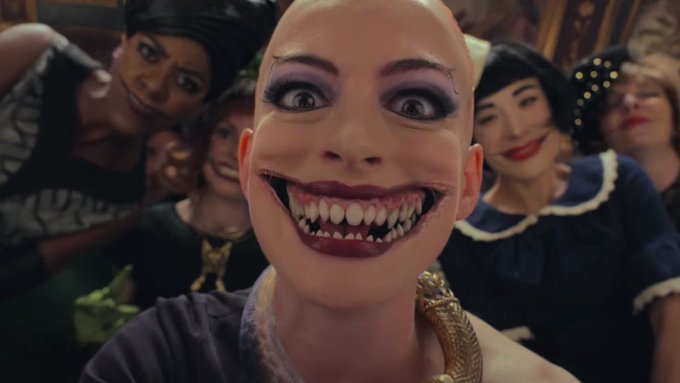
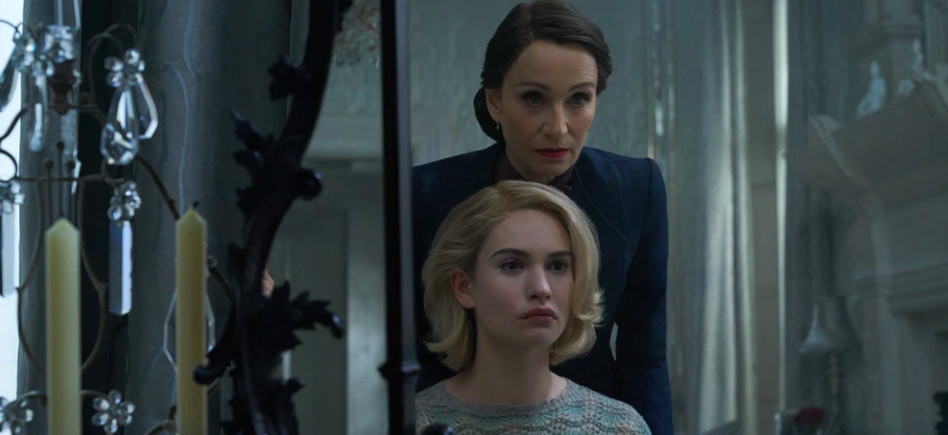
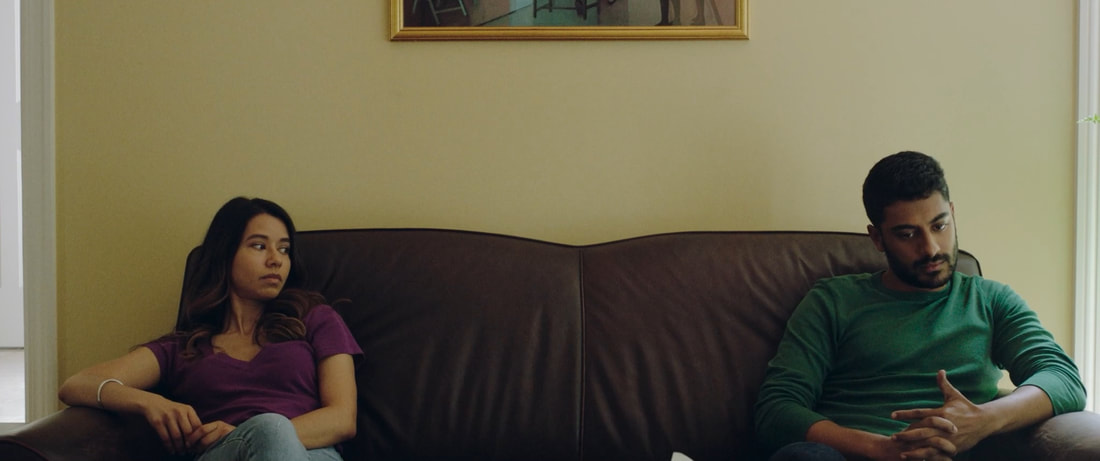
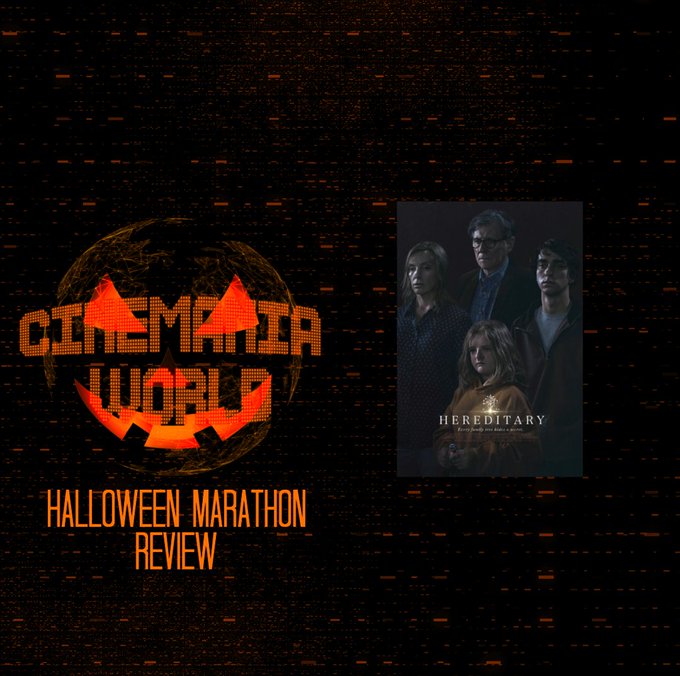
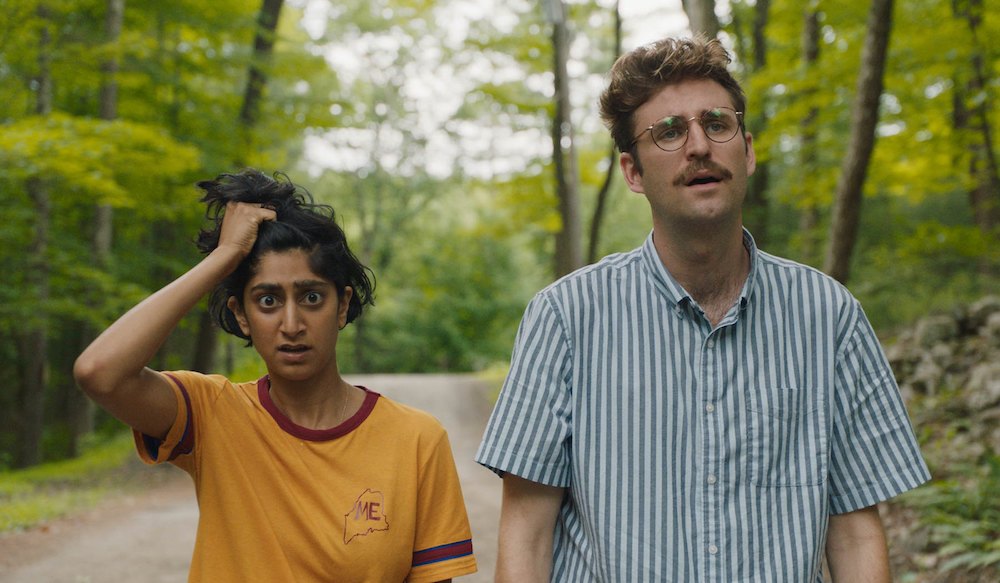
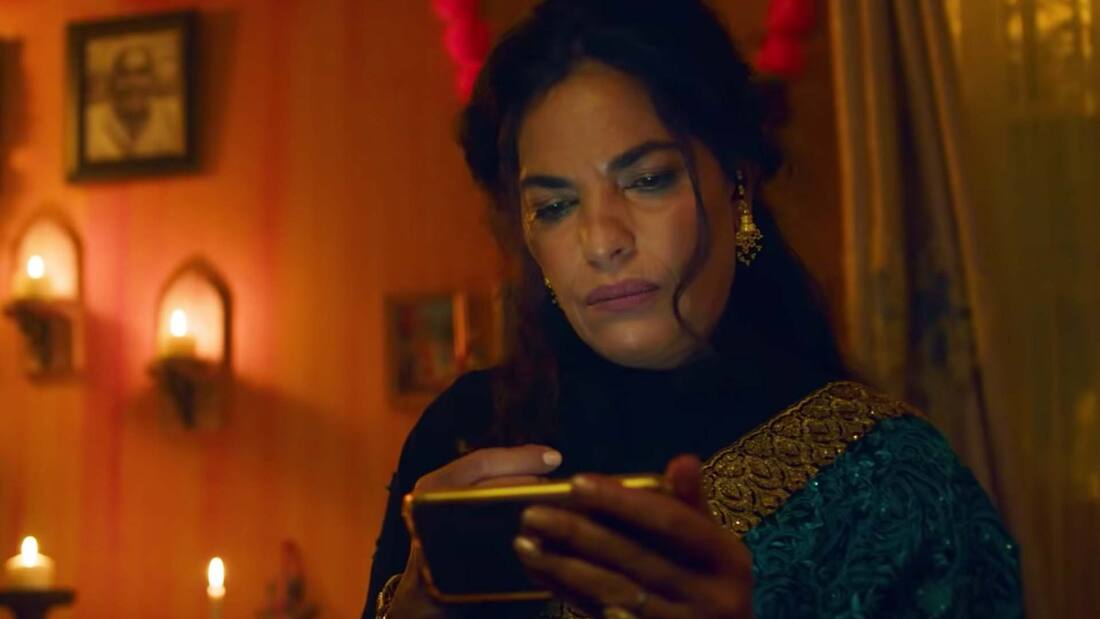
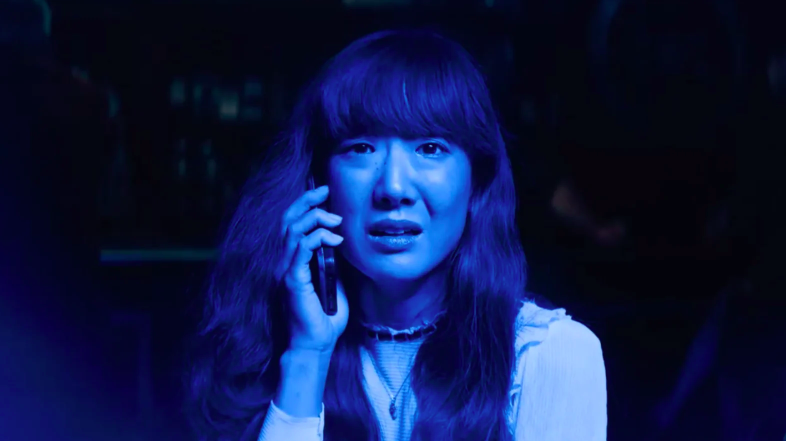
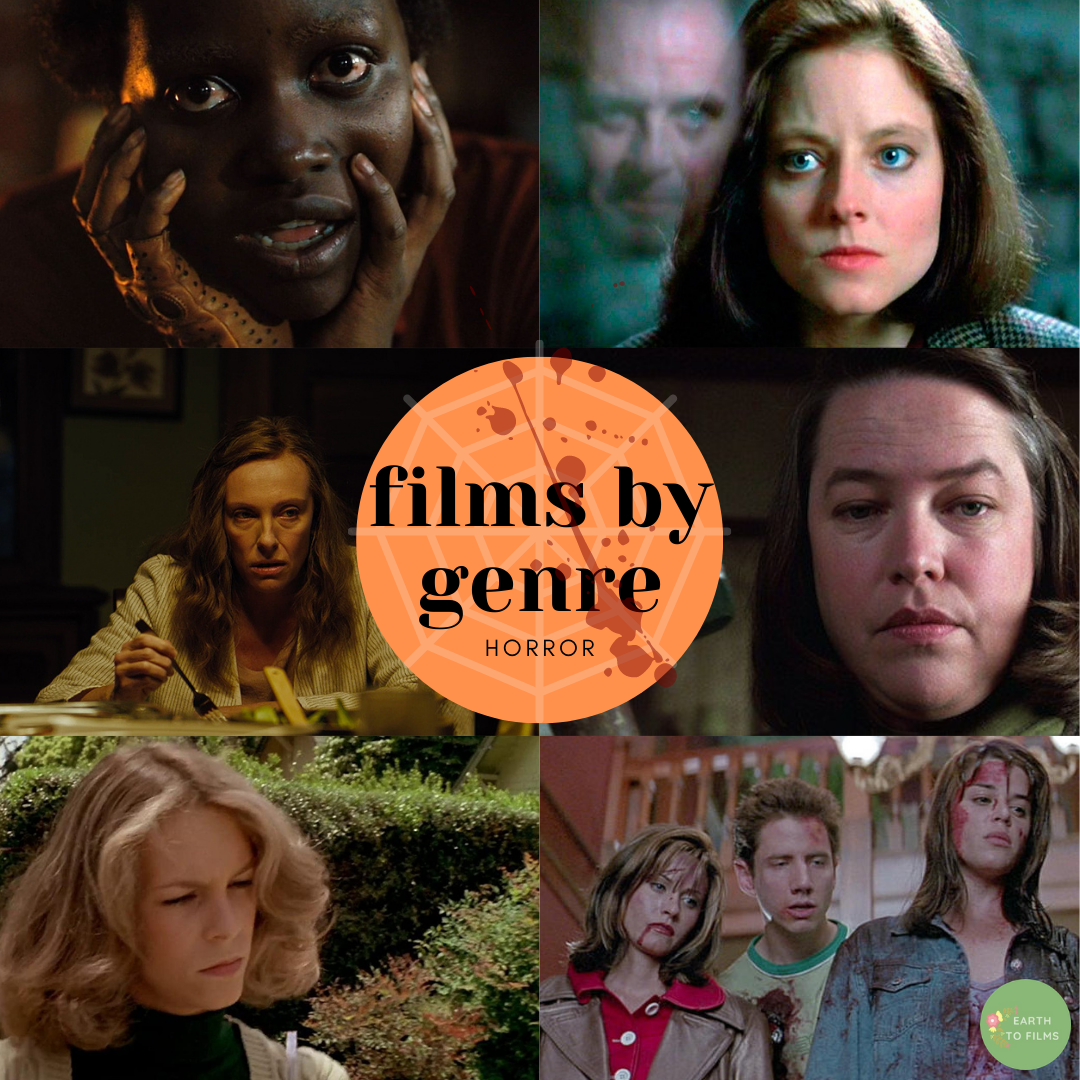
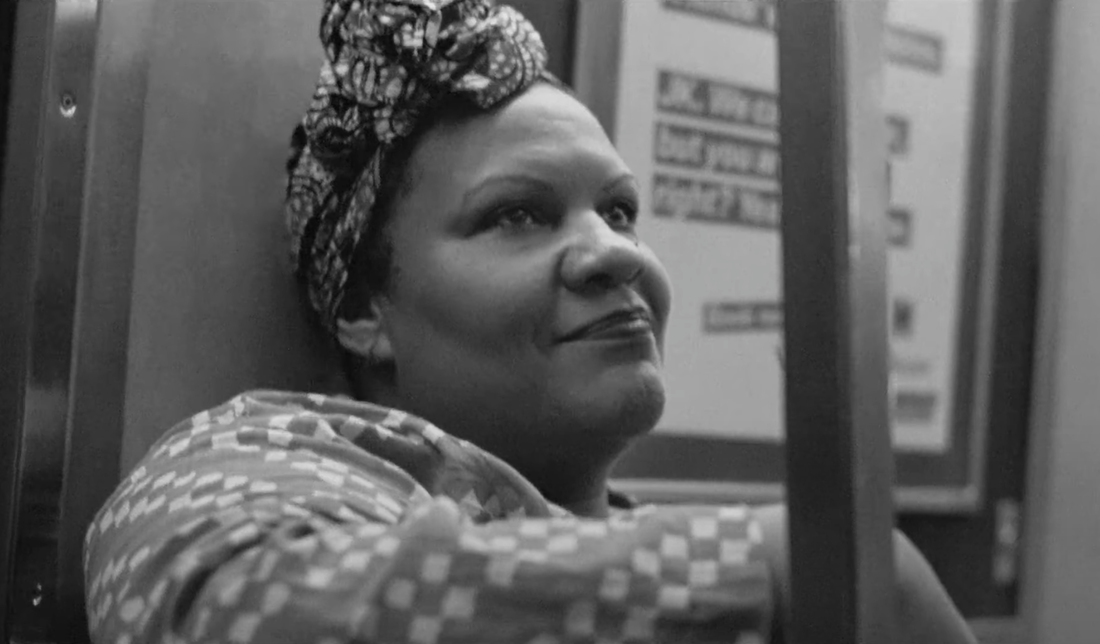
 RSS Feed
RSS Feed